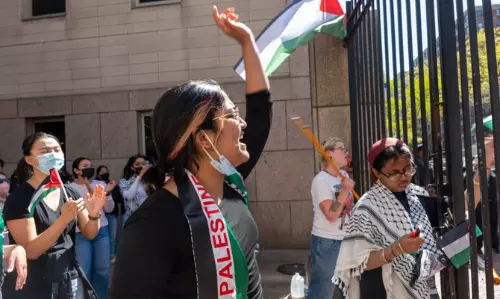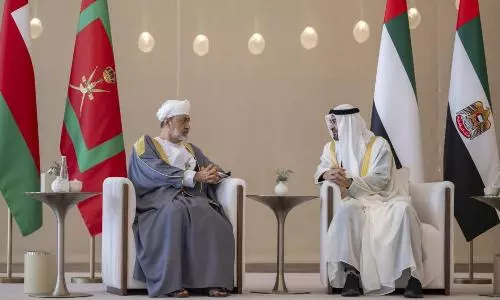
Mohan Bhagwat's Nagpur speech
text_fieldsThe annual speech on Vijayadashami day, the day of RSS formation, by the organization's Sarsanghchalak, has been receiving particular attention of the country over the last few years. The reason is simple: the activities of its cadres, right from legislators and executives to the lower levels like its feeder outfits and local pracharak, are remote controlled from Nagpur. Amit Shah, who was BJP president during the first term of Modi government, is said to have visited Nagpur every month. And it is from there that for the last few years, the policies and laws that impinge on all the citizens of the country have been emanating. For such reasons, the Dasara talk of the sarsanghchalak would be punctuated by indications for its sympathisers and opponents alike about its position on the country and the pursuits of RSS. The speech this time was no exception.
Reviewing the lectures of the last five years, Ajoy Ashirvad points at one important aspect, i.e. many of the demands raised by sarsanghchalak in recent years have become reality in the country. The key topics of speeches of 2015 and 2016 were Kashmir and the surgical strike against cross-border terrorism. In both these speeches the solution recommended for the Kashmir issue was repeal of Article 370. They have all been implemented now. Another concern shared by Mohan Bhagwat is about Muslim infiltration. The country is now gearing up for a citizenship scrutiny for the entire population of the country. The themes dwelt upon in the 2017 speech were those of urban naxals and the security threat created by Rohingyan refugee camps. The country now has decided to shut down their refugee camps and repatriate the refugees in violation of international norms and even by blacking out global protests. Well-known human rights activists were branded as urban naxaliles and put in jail. Most recently, 49 individuals were charge-sheeted with treason for having written a letter to the prime minister, in a clear attempt to bog them down in legal battles. All this adds up to tell that as far as the country is concerned, the RSS sarsanghchalak's speech on Dasara day has assumed greater dimensions than that of a mere annual lecture.
The over one-hour long speech by Mohan Bhagwat proves that RSS does not have anything new to suggest as solutions for the crisis faced by the country. Most of the speech was dedicated to laud the process of converting the country into a Hindu nation and to highlight the importance assigned to it by the government. Quoting former sarsanghchalak Deoras, Bhagwat drilled home the theory that anything other than the concept of Hindu nation will be subjected to change; further in the current times of economic crisis he diluted the sangh idea of 'swadeshi', and interpreted it in tune with foreign investments. The speech also accuses that there are still elements in the body politic of the country who are unhappy about the change of direction to Hindu nation and that they twist the well-intended policies of the government and misinterpret them.
The epithets Bhagwat used to describe them are enemies within and agents to be expelled. The strange reason cited by Mohan Bhawat is that they cause trouble by using the foreign concept and practice of mob lynching (even obliquely referring to them as biblical). According to him, this heinous act, which is alien to Indian tradition and which the sangh workers cannot indulge in, is being used to insult the Hindu society, denigrate the country and spread fear among minorities. What Mohan Bhagtwat aims to establish through this argument is clear. For, he says that incidents are created artificially and distorted to highlight a particular section as victim. Although he says that there should be stern legal action against lynching, what is hidden behind his interpretation of them is protection to the culprits and a warning to those who uncover such news.
Mohan Bhagwat also affirms that the idea put forward by Amit Shah of 'one India, one language, one election and one party' is an RSS concept, the only difference being in the vocabulary like 'swabhasha' 'swaboosha' and 'swasanskriti' used by the RSS chief. The speech, which bnetrays the RSS thrust in the path towards Hindu nation, only serves to convince us that the organisation is ideologically incapable of solving the crisis faced by the country or of adopting the path of co-existence. An ideology that is not ready to renew itself, and an approach to view criticisms within the country with enmity will only lead to a future with further bitterness and spite. And Mohan Bhagwat's Nagpur speech only reinforces once again how RSS views the victims of such a vicious atmosphere.























